A Product Detail Page (PDP) serves as an in-depth online showcase for individual products. This page offers a comprehensive overview, encompassing details like features, visuals, prices, and customer reviews. By presenting all relevant information, PDPs facilitate confident purchasing choices in e-commerce.
In the vibrant realm of modern eCommerce, Product Detail Pages (PDPs) have evolved to become the heart and soul of online shopping systems. Crafted with precision and finesse, these pages wield a profound influence over conversion rates, making them an indispensable facet of any successful digital retail venture.
Picture a PDP as the virtual gateway to individual products, a digital storefront that beckons potential customers with an immersive and intricate portrayal. Through a delicate interplay of design elements and interactive features, PDPs orchestrate an engaging symphony that captivates visitors and empowers them to make informed choices.
Embark with us on a journey to explore the reimagined landscape of Product Detail Pages and their pivotal role in shaping the eCommerce world.
What is a PDP (Product Detail Page)?
A Product Detail Page (PDP) is a dedicated webpage within an eCommerce website or platform that provides comprehensive information about a specific product for potential customers. It serves as a digital representation of a product, offering a detailed view of its features, specifications, visuals, and other essential information to help shoppers make informed purchasing decisions.
A well-designed PDP goes beyond simply displaying a product's basic details. It typically includes a combination of visual elements, textual descriptions, interactive features, and call-to-action buttons.
PDPs are designed to provide customers with all the information they need to make a confident purchasing decision without the need for additional research. As the central point of engagement between customers and products, PDPs play a critical role in influencing conversions, enhancing user experiences, and ultimately driving the success of eCommerce platforms.
Significance of Product Detail Pages (PDPs)
Informed Purchasing Decisions
PDPs provide a comprehensive and detailed view of a product's features, specifications, and benefits. This wealth of information empowers customers to make informed decisions, reducing uncertainty and increasing their confidence in the purchase.
Conversion Rate Impact
A well-optimized PDP can significantly boost conversion rates. By delivering relevant information in an appealing manner, PDPs encourage visitors to take the next step and complete a purchase.
Enhanced Customer Engagement
Engaging visuals, interactive elements, and compelling product descriptions on PDPs captivate visitors and encourage them to spend more time exploring the product. This engagement can lead to higher chances of conversion.
Customer Trust and Credibility
Detailed product information, customer reviews, and ratings featured on PDPs build trust and credibility. Positive reviews serve as social proof, assuring potential customers of the product's quality and value.
Reduced Return Rates
Accurate and detailed information on PDPs helps manage customer expectations, potentially reducing instances of product returns due to discrepancies between expectations and reality.
Showcasing Product Features
PDPs allow businesses to showcase a product's unique features, demonstrating its value proposition and differentiating it from competitors.
Cross-Selling and Upselling Opportunities
PDPs can suggest related products, encouraging customers to explore additional options and potentially increasing the value of their purchase.
Branding and User Experience
PDPs are an extension of a brand's identity. A well-designed and cohesive PDP reflects a brand's professionalism and commitment to providing a seamless shopping experience.
Mobile-Friendly Experience
As mobile shopping becomes increasingly prevalent, PDPs need to be optimized for mobile devices. A positive mobile experience can lead to higher engagement and conversions.
Global Reach
PDPs can cater to diverse audiences in different regions by providing localized information, currencies, and languages.
User-Centric Design
A well-crafted PDP focuses on user needs and preferences, ensuring that customers find what they're looking for quickly and easily.
Components of a Good PDP (Product Detail Page)
General Components
Menu
The navigation menu provides quick access to different sections of the website, ensuring customers can seamlessly explore other products and categories.
Breadcrumbs
Breadcrumbs offer a visual trail that indicates the current page's position within the site's hierarchy, aiding navigation and helping customers understand where they are.
Search Bar
A prominent search bar empowers customers to find specific products quickly, ensuring a user-friendly experience for those with specific requirements.
Product Images and Visuals
High-resolution images, dynamic videos, and interactive 360-degree views present the product in all its glory, fostering a tangible connection with potential buyers.
Product Description
A well-crafted narrative that transcends mere information, weaving together the product's story, features, and benefits to ignite customer interest.
Price and Offers
Transparent pricing information, coupled with any ongoing discounts, deals, or bundle offers, helps customers assess the product's affordability and value.
Product Specifications
Technical details such as dimensions, weight, materials, and other specifications provide a comprehensive understanding of the product's attributes.
Product Variations and Options
If the product comes in various options (colors, sizes, models), these selections allow customers to tailor their choices to their preferences.
Add to Cart/Buy Now
A conspicuous call-to-action button beckoning customers to initiate the purchasing process, is strategically positioned for easy access.
Conversion components
Clear Call-to-Action (CTA)
The "Add to Cart" or "Buy Now" button should stand out with a contrasting color, enticing customers to take action. The CTA's wording should be concise and action-oriented.
Urgency and Scarcity
Displaying limited quantities or time-bound offers can create a sense of urgency, nudging customers towards a quicker decision.
Trust Signals
Displaying trust badges, security certifications, and payment options reassures customers about the safety of their transactions.
Related Products and Recommendations
Suggesting complementary or similar products encourages cross-selling and upselling, potentially increasing the order value.
Social Proof
Social proof is a powerful tool that can significantly boost your conversion rates. It's a key element in top tools for Conversion Rate Optimization (CRO). When potential customers see positive feedback from others who have bought the same product, it can be a strong motivator to make a purchase. Social proof comes in various forms, like star ratings, industry awards, and trust badges. Consider how you can use these types of proof to your advantage and use them to convince potential customers to buy.
Administrative components
Shipping and Delivery Information
Transparent information about shipping costs, delivery timeframes, and available options helps customers plan accordingly.
Return Policy
Clear terms regarding returns, exchanges, and refunds instill confidence in customers, alleviating concerns about post-purchase support.
Customer service Components
Virtual Consultations
Virtual consultations offer personalized assistance to customers in real-time. They provide an interactive platform where customers can ask questions, seek advice, and receive tailored recommendations. This human touch in a digital environment enhances customer satisfaction and guides them toward well-informed decisions.
Chatbot
Chatbots are automated assistants that engage customers in conversations. They address queries, provide product information, and offer support 24/7. Chatbots streamline customer interactions, making the shopping experience more efficient and responsive.
Social Media Components
Social Media Sharing
Social media sharing buttons allow customers to easily share their favorite products on their social profiles. This transforms customers into brand advocates, expanding the product's reach through organic exposure. Word-of-mouth recommendations in the digital space amplify the product's visibility.
Other Components
Personalization
Personalization tailors the shopping experience based on individual customer preferences and behaviors. By analyzing browsing history and purchase patterns, personalized recommendations are provided, making the customer feel understood and increasing the chances of discovering products of interest.
Examples - PDP (Product Detail Page)
Garmin
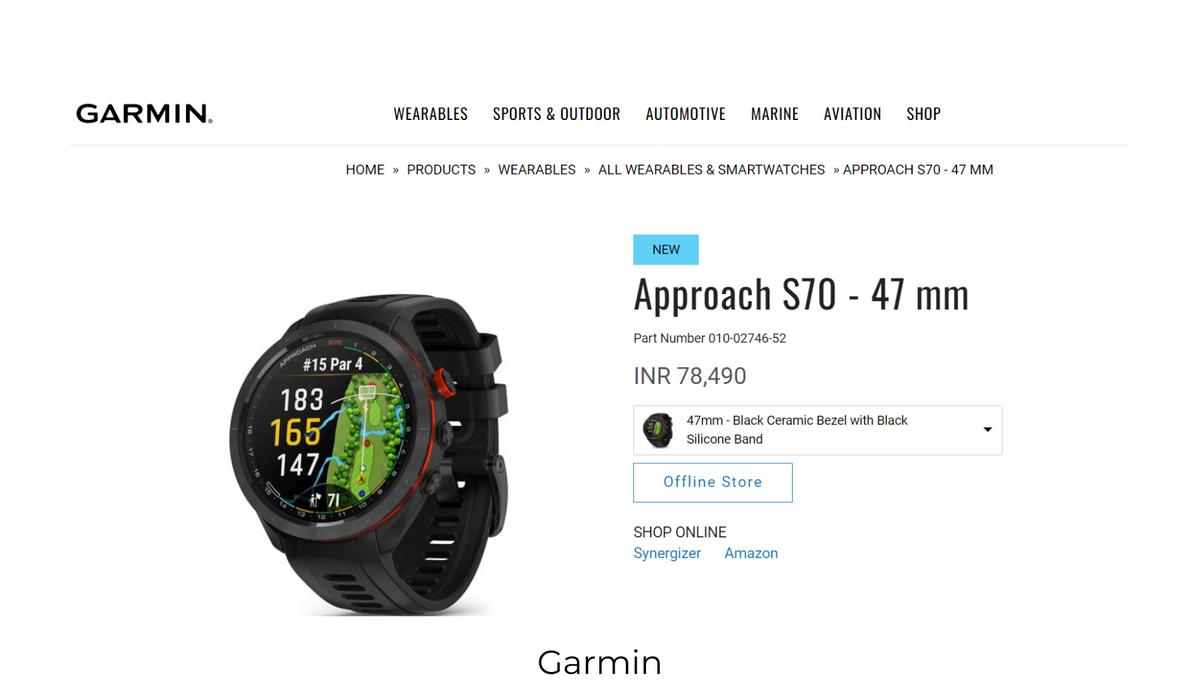
Apple
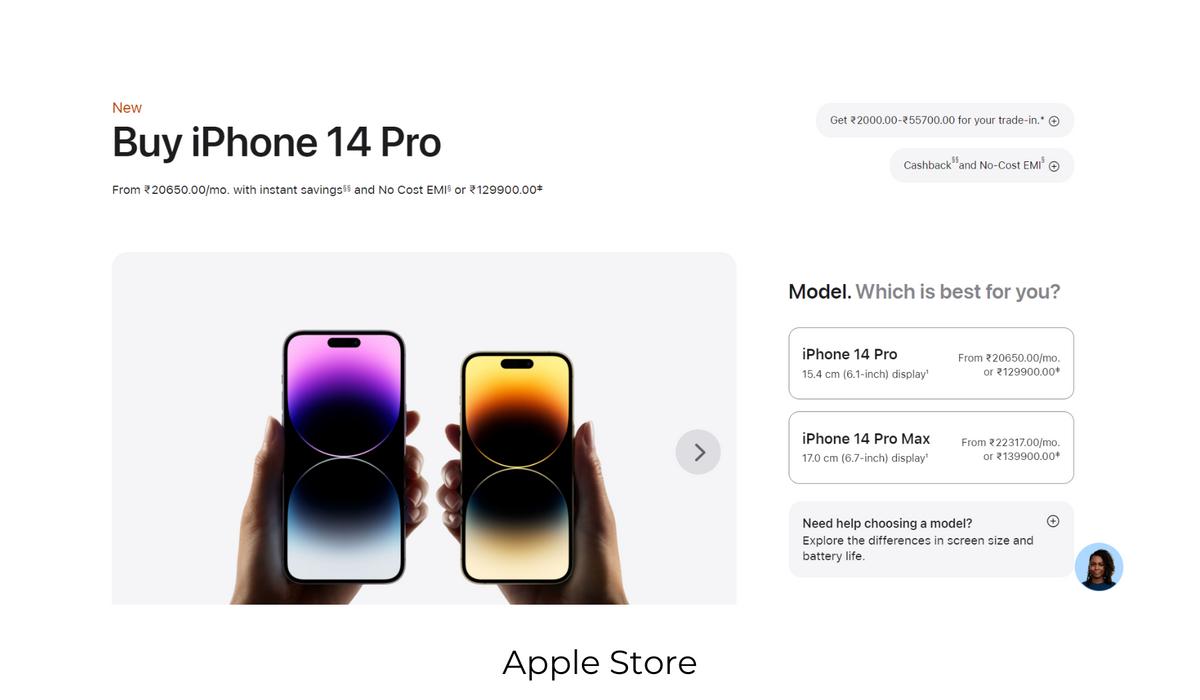
Fitbit
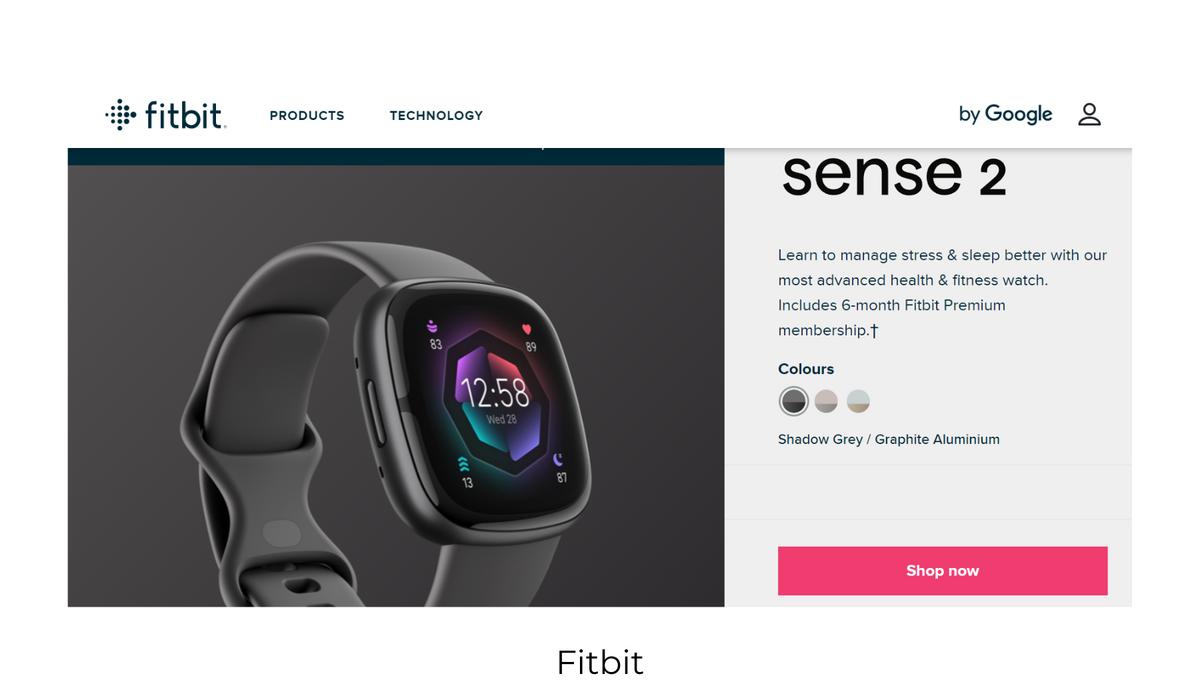
Calvin Klein
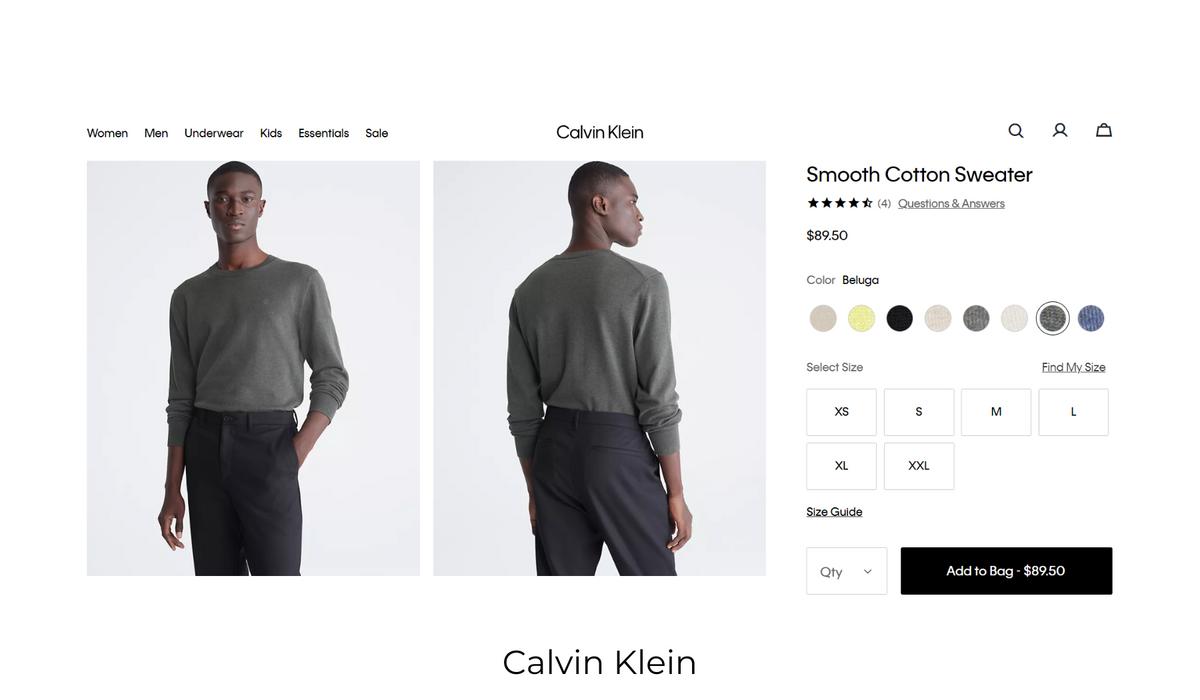
Pepperfry
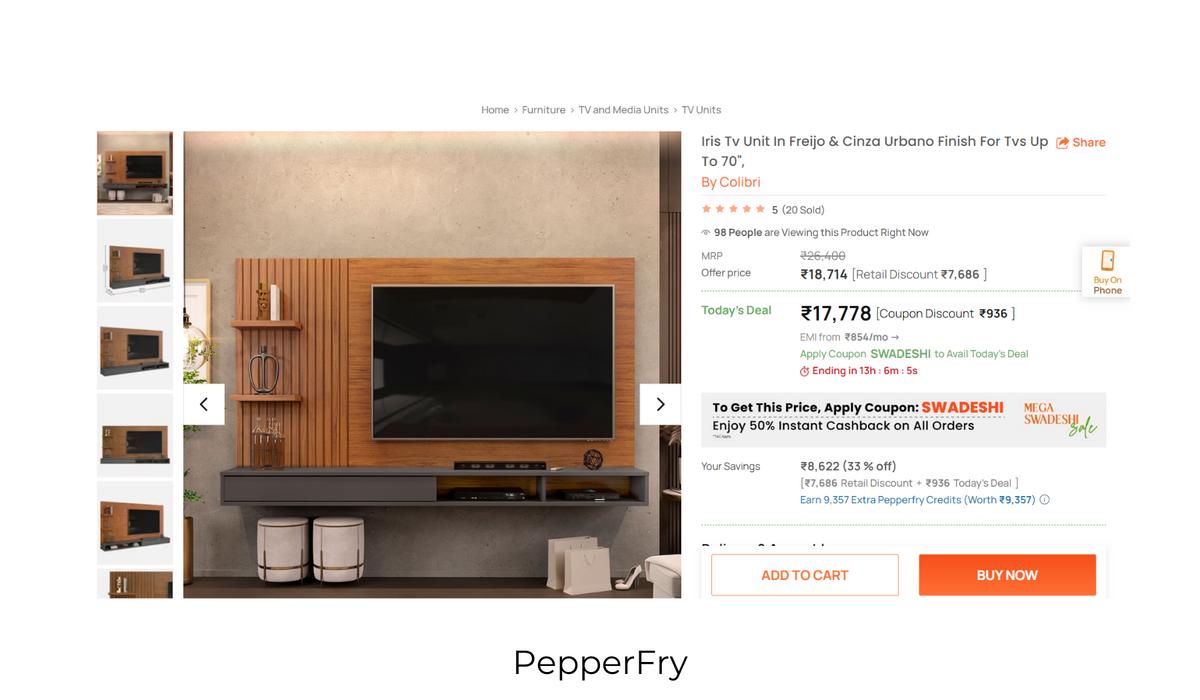
Conclusion
In the world of online shopping, Product Detail Pages (PDPs) are like digital shop windows. They're super important because they can convince people to buy things. Think of them as a special webpage for each product. PDPs are like the cool storytellers of products. They show pictures, tell you what's awesome about the product, and even give you the price. They help you decide if you want to buy it.
As you navigate the complexities of modern eCommerce, remember that PDPs are your digital ambassadors, creating the first impression of your products and brand. By applying the insights shared here, you're poised to create PDPs that not only inform but engage, empower, and inspire customers on their shopping journey. With PDPs as your strategic allies, your eCommerce venture is primed for success in the competitive digital marketplace.

